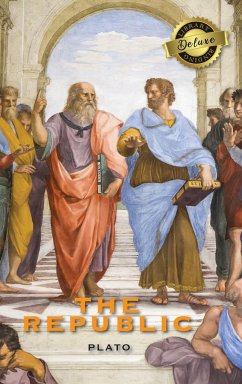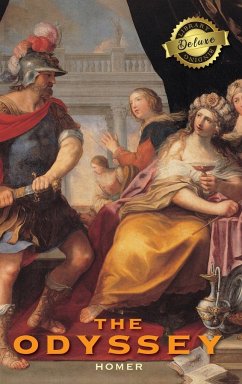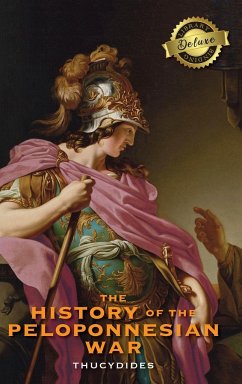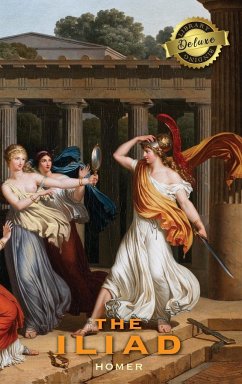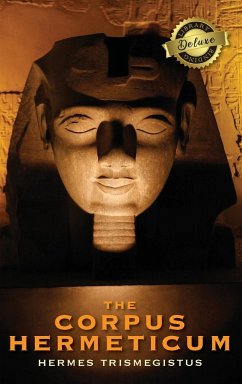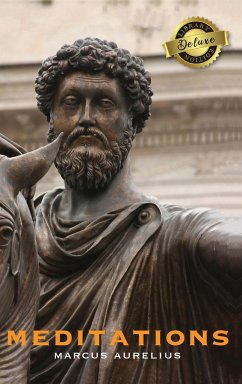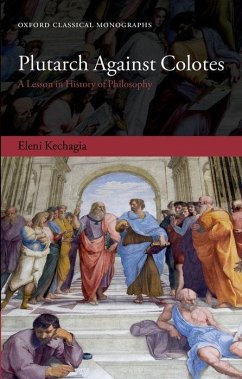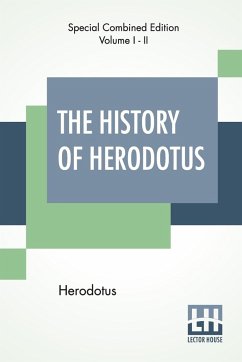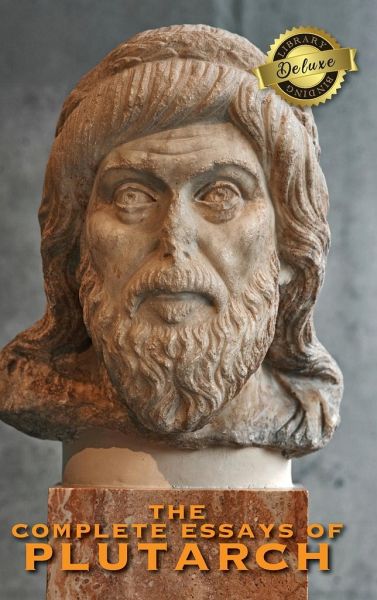
The Complete Essays of Plutarch (Deluxe Library Edition)
Versandkostenfrei!
Versandfertig in 1-2 Wochen
41,99 €
inkl. MwSt.

PAYBACK Punkte
21 °P sammeln!
The Complete Essays of Plutarch includes 133 chapters on nature, Plutarch's Symposiacs, as well as his collection of literary essays. Plutarch was a Platonist, but was open to the influence of the Peripatetics, and in some details even to Stoicism despite his criticism of their principles. He rejected only Epicureanism absolutely. He attached little importance to theoretical questions and doubted the possibility of ever solving them. He was more interested in moral and religious questions. Plutarch's writings had an enormous influence on English and French literature. Shakespeare paraphrased p...
The Complete Essays of Plutarch includes 133 chapters on nature, Plutarch's Symposiacs, as well as his collection of literary essays. Plutarch was a Platonist, but was open to the influence of the Peripatetics, and in some details even to Stoicism despite his criticism of their principles. He rejected only Epicureanism absolutely. He attached little importance to theoretical questions and doubted the possibility of ever solving them. He was more interested in moral and religious questions. Plutarch's writings had an enormous influence on English and French literature. Shakespeare paraphrased parts of Thomas North's translation of selected Lives in his plays, and occasionally quoted from them verbatim. Plutarch's influence declined in the 19th and 20th centuries, but it remains embedded in the popular ideas of Greek and Roman history. One of his most famous quotes was one that he included in one of his earliest works. "The world of man is best captured through the lives of the men who created history."





